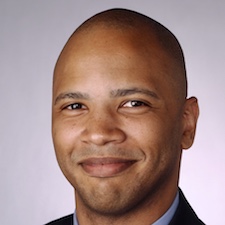 The board of regents of the University of the South in Sewanee, Tennessee, issued a statement apologizing for some facts of its past. “The University of the South was long entangled with, and played a role in, slavery, racial segregation, and white supremacy — forces that found particular and painful expression in the Confederacy and, later, in the “Lost Cause” mythology of the White South,” the regents wrote.
The board of regents of the University of the South in Sewanee, Tennessee, issued a statement apologizing for some facts of its past. “The University of the South was long entangled with, and played a role in, slavery, racial segregation, and white supremacy — forces that found particular and painful expression in the Confederacy and, later, in the “Lost Cause” mythology of the White South,” the regents wrote.
Research sponsored by the university found that:
- The University was the only institution of higher education designed from the start to represent, protect, and promote the South’s civilization of bondage; and launched expressly for the slaveholding society of the South.
- A primary justification for the University’s founding asserted that the white men of the South were positioned better than any other to make the highest contributions to world civilization because slavery allowed them to devote themselves to higher attainments. The organizational blueprint for the institution indicates the founders envisioned the University as a leading center of scientific scholarship proving white racial superiority and the “aptitude” of people of African descent for enslavement.
- In Sewanee’s first several decades after the Civil War, its identity as “a child of the Confederacy” emerged in many ways: Those who held key leadership roles typically had been slave owners, defenders of slavery and secession, and Confederate military leaders; and some of the most consequential donors had been the owners or beneficiaries of some of the largest slavery-based plantations in the antebellum South.
- For a significant portion of the 20th century, policies and practices on campus perpetuated Jim Crow, white supremacy, and mythologies about the honorable causes represented by the Confederacy.
- There remain many buildings and monuments on Sewanee’s campus that memorialize slaveholders or supporters of the Confederacy, articulators of scientific and other theories of white supremacy, and defenders of Jim Crow segregation.
In their statement of apology, the regents concluded by saying that “the University of the South categorically rejects its past veneration of the Confederacy and of the “Lost Cause” and wholeheartedly commits itself to an urgent process of institutional reckoning in order to make Sewanee a model of diversity, of inclusion, of intellectual rigor, and of loving spirit in an America that rejects prejudice and embraces possibility.”
The University of the South enrolls nearly 1,700 undergraduate students and less than 100 graduate students, according to date supplied to the U.S. Department of Education. African Americans make up 4 percent of the undergraduate student body.












Well, . . . will wonders never cease?!? Welcome to the 21st Century, University of the South.